Anti Money Laundering Meaning
Money laundering is a type of financial crime. It involves taking criminally obtained proceeds dirty money and disguising their origins so theyll appear to be from a legitimate source.
Https Www Econstor Eu Bitstream 10419 162698 1 891246215 Pdf
Anti-Money Laundering Any law or regulation requiring an institution to perform due diligence on potential clients to ensure that it is not aiding in a money laundering scheme.
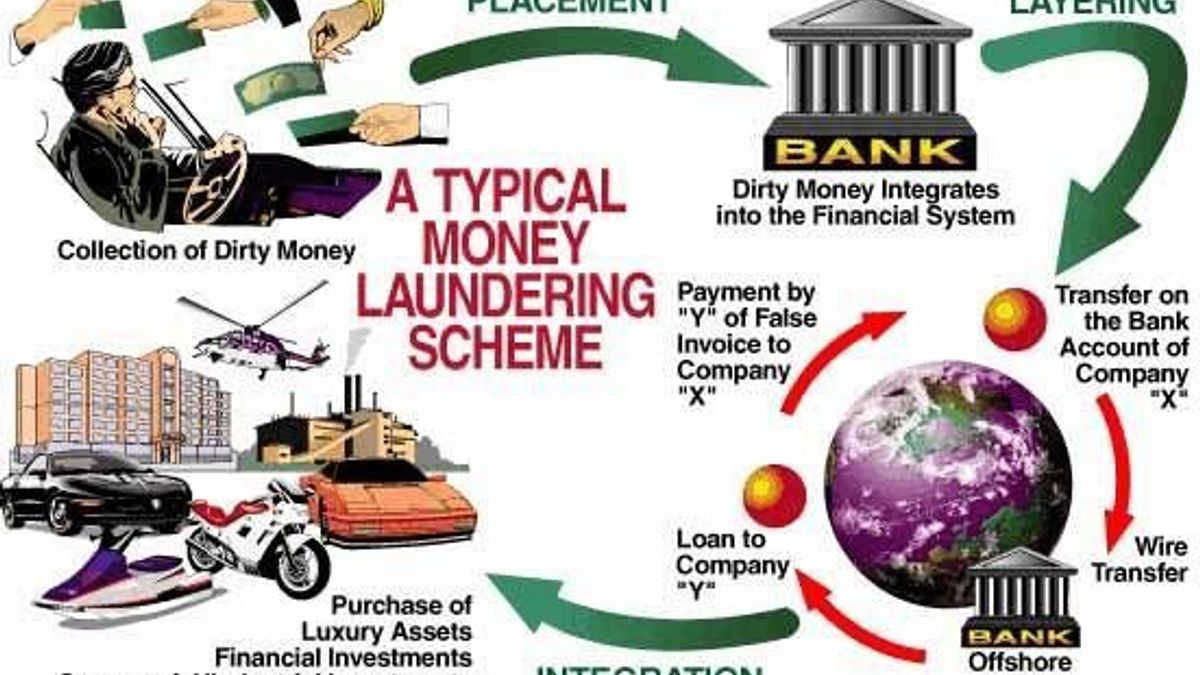
Anti money laundering meaning. What It Is Why It Matters. Generally the more layers money passes through the harder. Though anti-money-laundering AML laws cover a relatively limited range of transactions and criminal behaviors their implications are far-reaching.
There are three major steps in money laundering placement layering and integration and various controls are put in place to monitor suspicious activity that could be involved in money laundering. The term refers to a broad swath of laws regulations directives and procedures that exist to prohibit or stop the laundering of illegal money. Anti-Money Laundering Law means any and all laws statutes regulations or obligatory government orders decrees ordinances or rules applicable to the parties hereto their respective subsidiaries or Affiliates related to terrorism financing or money laundering including any applicable provision of the PATRIOT Act and The Currency and Foreign Transactions Reporting Act also.
The criminal moves laundered money back into the financial system. Anti Money Laundering AML also known as anti-money laundering is the execution of transactions to eventually convert illegally obtained money into legal money. AML laws require that financial instutions report any financial crime they detect to relevant regulators.
If the institution does not conduct due diligence properly it may be held legally liable for the money laundering activities. During the layering stage the goal is to disconnect the money from the illegal activity that generated it. What Is Anti Money Laundering.
Anti-money laundering AML refers to the activities financial institutions perform to achieve. Anti-money laundering AML is a term mainly used in the financial and legal industries to describe the legal controls that require financial institutions and other regulated entities to prevent detect and report money laundering activities. Money laundering is the processing of these criminal proceeds to disguise their illegal origin.
The concept of cash laundering is essential to be understood for those working within the monetary sector. This process is of critical importance as it enables the criminal to enjoy these profits without jeopardising their source. AML - Anti-Money Laundering.
What Is Anti-Money Laundering AML. It is a process by which soile. Although you as a company stick to the rules this does not mean that your partners and business associates adhere to the same AML compliance laws as you.
AML is an abbreviation for anti-money laundering. Anti-money laundering AML refers to all policies and pieces of legislation that force financial institutions to monitor their clients to prevent money laundering. An effective anti-money launderingcounter financing of terrorism framework must therefore address both risk issues.
It must prevent detect and punish illegal funds entering the financial system and the funding of terrorist individuals organizations andor activities. Anti-Money Laundering AML is a set of policies procedures and technologies that prevents money laundering. Anti-money laundering includes all the laws regulations and policies to prevent money laundering and financial crime.
A money launderer or the criminal themselves engages in a series of transactions to create layers between the illegal source of the cash they control. If the institution does not conduct due diligence properly it may be held legally liable for the money laundering activities. There are global and local regulatory bodies established to monitor the financial crimes in their regions and create policies to prevent them from happening or catch the ones involved in such activities.
Anti-money laundering refers to laws and regulations intended to stop criminals from disguising illegally obtained funds as legitimate income. What is anti-money laundering. Anti-money laundering refers to the United States laws and protocols that prevent individuals or groups from making illegally-gained moneytypically more than 10000appear legal.
Anti-Money Laundering Any law or regulation requiring an institution to perform due diligence on potential clients to ensure that it is not aiding in a money laundering scheme. Anti-money laundering refers to a set of laws regulations and procedures intended to prevent criminals from disguising illegally obtained funds as legitimate income.

International Banking Wealth Management Aml Quality Control Effective Anti Money Laundering Online Presentation
What Does Aml Cft Mean Definition Of Aml Cft Aml Cft Stands For Anti Money Laundering And Combating The Financing Of Terrorism By Acronymsandslang Com
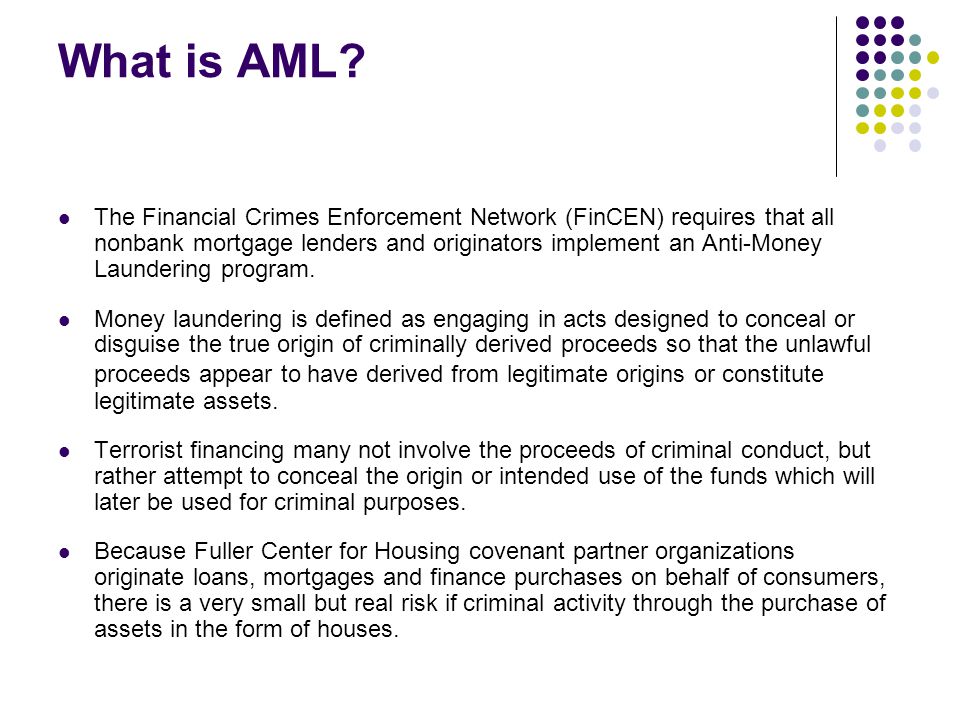
Anti Money Laundering Aml Ppt Video Online Download
Tanzania Financial Intelligence Unit Money Laundering Definition Kitengo Cha Kudhibiti Fedha Haramu Maana Ya Biashara Ya Fedha Haramu
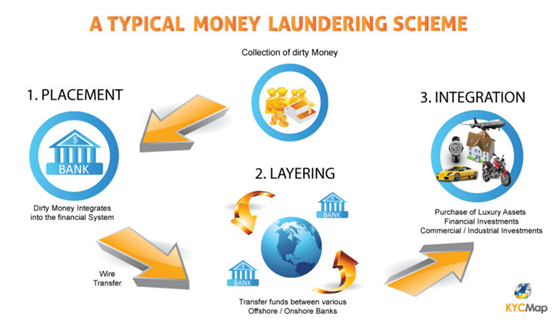
Money Laundering Terrorist Financing Are You Aware Anti Money Laundering Compliance Unit
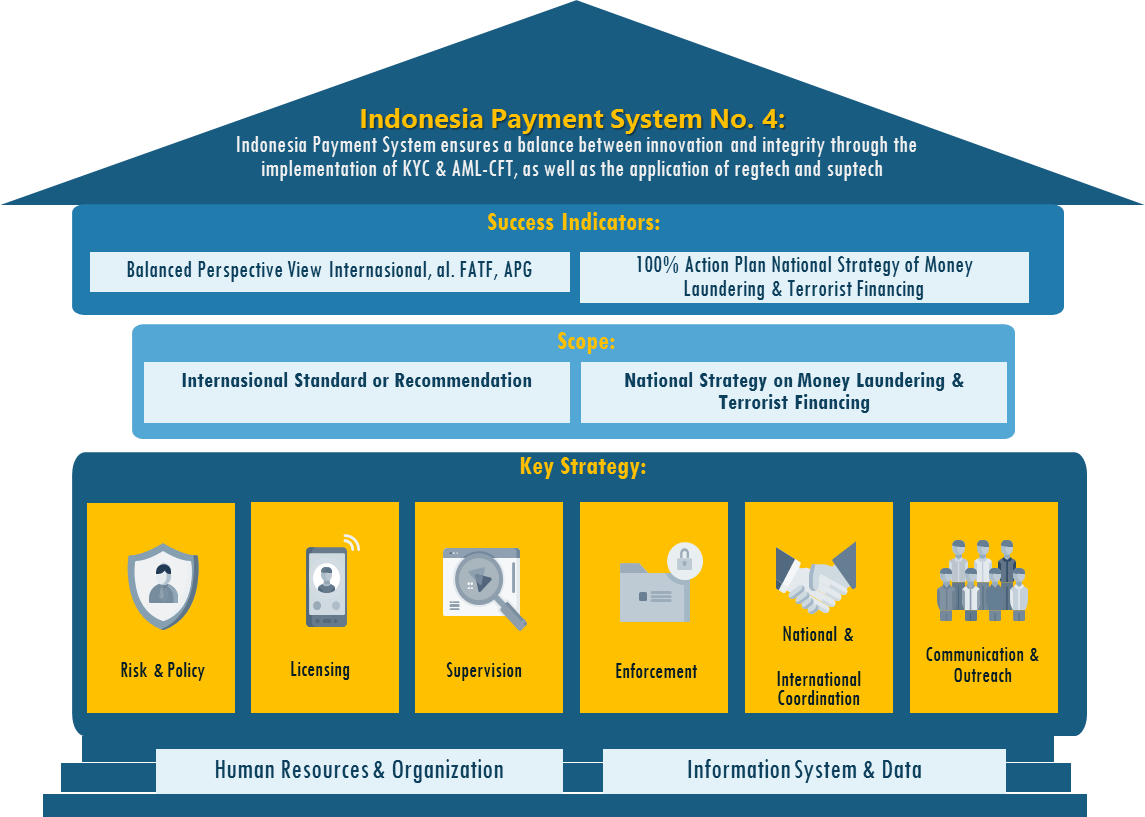
Anti Money Laundering And Counter Terrorism Financing

Difference Between Kyc And Aml Tookitaki Tookitaki

What Is Anti Money Laundering Quora
An Introduction To The 360 Degree Aml Investigation Model Acams Today
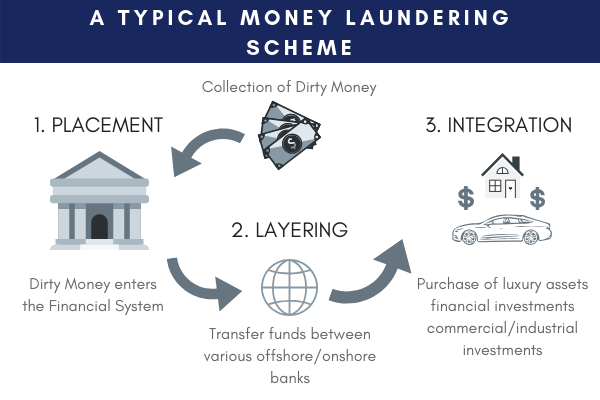
Understanding The Risks Of Money Laundering In Sri Lanka The Lakshman Kadirgamar Institute

What Is Money Laundering And How Is It Done

Key Component Of Aml Anti Money Laundering Compliance Program Plianced Inc

Anti Money Laundering Overview Process And History
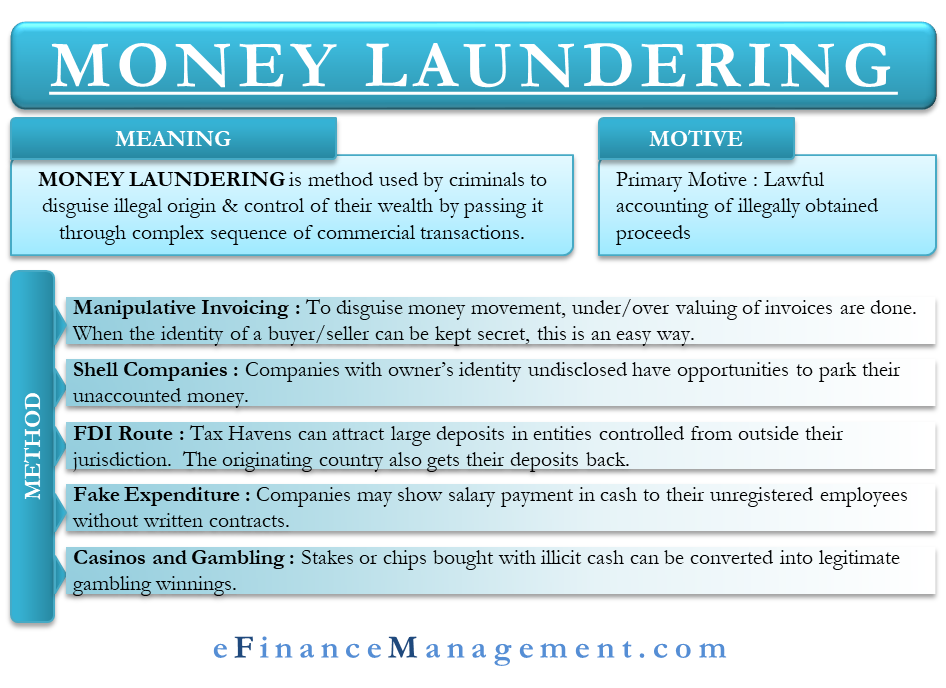
Money Laundering Define Motive Methods Danger Magnitude Control
Anti Money Laundering Fuzzy Logix
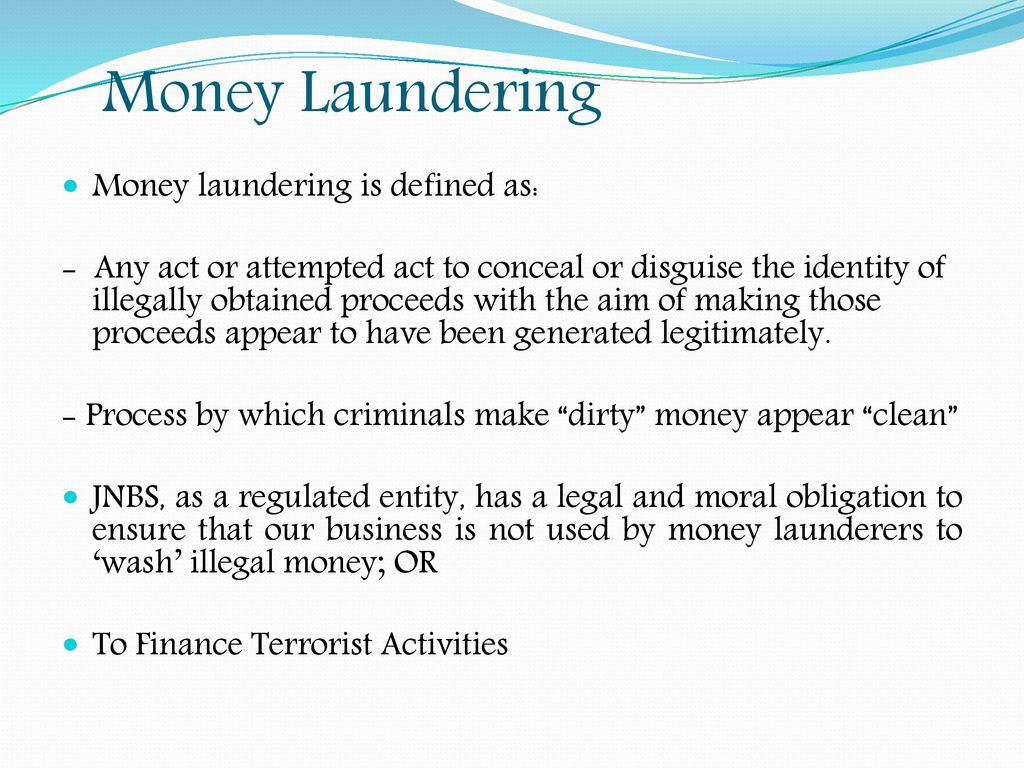
Anti Money Laundering Counter Financing Of Terrorism Aml Cft Ppt Download
Anti Money Laundering And Counter Terrorism Financing
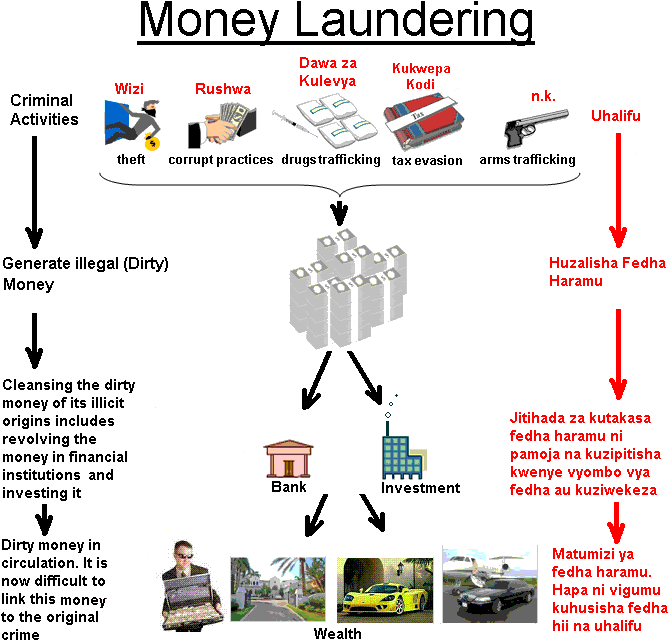
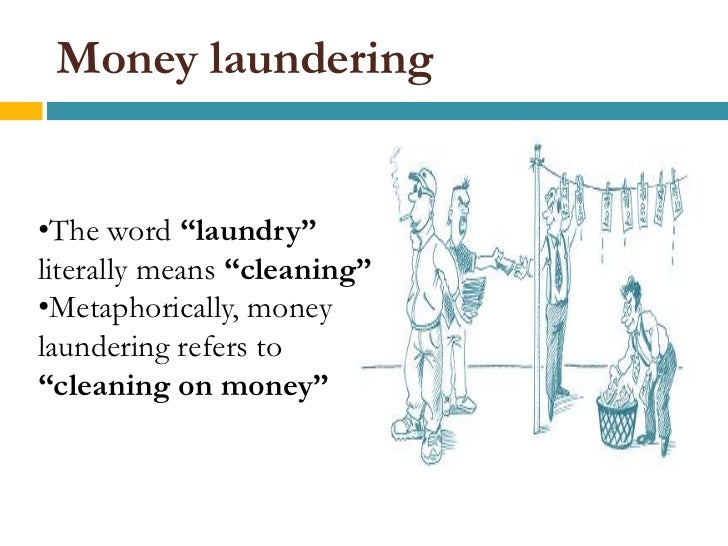
Komentar
Posting Komentar